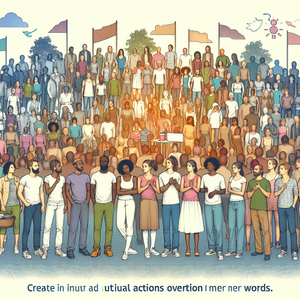Bridging the Gap: Contract Mental Health Technicians as Key Players in Integrated Care Models

Contract mental health technicians serve as essential support staff within integrated care models. Typically employed on a temporary basis, these technicians offer healthcare facilities the flexibility to respond to varying patient needs effectively. Their primary responsibilities include assisting patients with mental health issues, conducting assessments, providing direct care, and facilitating communication between various healthcare providers. One of the significant advantages of having contract mental health technicians in integrated care teams is their ability to offer immediate support to patients experiencing a mental health crisis. For instance, in a hospital setting, a contract technician can quickly assess a patient who has been admitted for a physical ailment but is also exhibiting signs of anxiety or depression. By addressing these mental health concerns promptly, technicians can help prevent further complications and improve the overall treatment experience, ensuring that both physical and mental health are prioritized.
Improving Patient Outcomes Through Collaboration
The collaborative nature of integrated care models allows contract mental health technicians to work closely with a diverse team of healthcare professionals, including physicians, nurses, social workers, and therapists. This multidisciplinary approach enhances communication and ensures that all aspects of a patient's health are considered in their care plan. Research supports the idea that integrating mental health services with physical healthcare can lead to better patient outcomes. A study published in the Journal of Integrated Care found that patients receiving coordinated care from both mental health and physical health providers experience improved health outcomes, reduced hospitalizations, and increased satisfaction with their care. In this context, contract mental health technicians play a crucial role in facilitating coordination, ensuring that patients receive comprehensive support tailored to their individual needs.
Challenges and Opportunities
Despite the significant contributions of contract mental health technicians to integrated care models, they face unique challenges in their roles. One major concern is the lack of job security and benefits that often accompany contract positions. Many technicians work in multiple settings, which can hinder their ability to build lasting relationships with patients or fully engage in team dynamics. This transient nature of contract work can also result in feelings of isolation or burnout, highlighting the need for healthcare organizations to create supportive environments for these professionals. Additionally, as the demand for integrated care continues to grow, there is an increasing need for ongoing training and professional development for contract mental health technicians. Equipping these professionals with the skills to navigate complex healthcare systems and effectively collaborate with other providers is vital for maximizing their impact within integrated care teams.
Contract mental health technicians are emerging as key players in the integration of mental and physical health services. By bridging the gap between care providers, they enhance communication, improve patient outcomes, and contribute to a more holistic approach to healthcare. While they encounter challenges related to job security and professional development, the value they bring to integrated care models cannot be overstated. As the healthcare landscape continues to evolve, investing in the roles and training of contract mental health technicians will be essential for fostering a more comprehensive and effective healthcare system. Their contributions not only help patients navigate their mental health challenges but also pave the way for a future where mental health is seamlessly integrated into overall healthcare. By recognizing the importance of contract mental health technicians and addressing their unique challenges, the healthcare system can better serve the needs of patients, ultimately leading to improved outcomes and a healthier society.
Integrated Care Coordinator
Healthcare systems, community health organizations, and integrated care facilities
Core Responsibilities
Facilitate communication between mental health and physical health providers to ensure comprehensive patient care.
Develop and implement care plans that address both mental and physical health needs of patients.
Monitor patient progress and make necessary adjustments to care plans based on evolving needs.
Required Skills
Strong interpersonal and communication skills for effective collaboration with diverse healthcare teams.
Knowledge of mental health and physical health integration practices.
Experience with electronic health records (EHR) systems.
Behavioral Health Technician
Mental health clinics, hospitals, and rehabilitation centers
Core Responsibilities
Provide direct support to patients experiencing mental health crises in a variety of settings, including hospitals and outpatient facilities.
Conduct initial assessments and assist in developing treatment plans under the guidance of licensed professionals.
Monitor patient behavior and report any changes to the treatment team.
Required Skills
Understanding of mental health disorders and crisis intervention techniques.
Ability to maintain patient confidentiality and adhere to HIPAA regulations.
Experience working with diverse populations, including those with co-occurring disorders.
Crisis Intervention Specialist
Hospitals, community mental health agencies, and crisis response teams
Core Responsibilities
Respond to mental health emergencies, providing immediate support and risk assessment to individuals in crisis.
Collaborate with law enforcement and emergency services to ensure safe and effective interventions.
Facilitate referrals to appropriate mental health services following crisis stabilization.
Required Skills
Training in de-escalation techniques and crisis management.
Strong analytical skills to assess risk and make quick decisions.
Certification in mental health first aid or crisis intervention preferred.
Psychiatric Rehabilitation Specialist
Non-profit organizations, outpatient mental health programs, and rehabilitation centers
Core Responsibilities
Assist individuals with mental health conditions in developing skills for daily living and community integration.
Conduct group and individual sessions focused on recovery and rehabilitation.
Collaborate with multidisciplinary teams to support holistic patient care.
Required Skills
Knowledge of recovery-oriented practices and psychiatric rehabilitation principles.
Experience facilitating psychoeducational groups and skills training.
Strong motivational interviewing skills.
Telehealth Mental Health Technician
Telehealth companies, hospitals with telehealth programs, and mental health clinics offering remote services
Core Responsibilities
Provide virtual support to patients through telehealth platforms, assisting with mental health assessments and follow-ups.
Educate patients on using technology for their mental health care and ensure they understand their treatment plans.
Monitor patient engagement and document progress in virtual sessions.
Required Skills
Proficiency in telehealth technologies and digital communication tools.
Strong organizational skills to manage multiple virtual appointments.
Familiarity with ethical considerations and best practices for telehealth in mental health.


